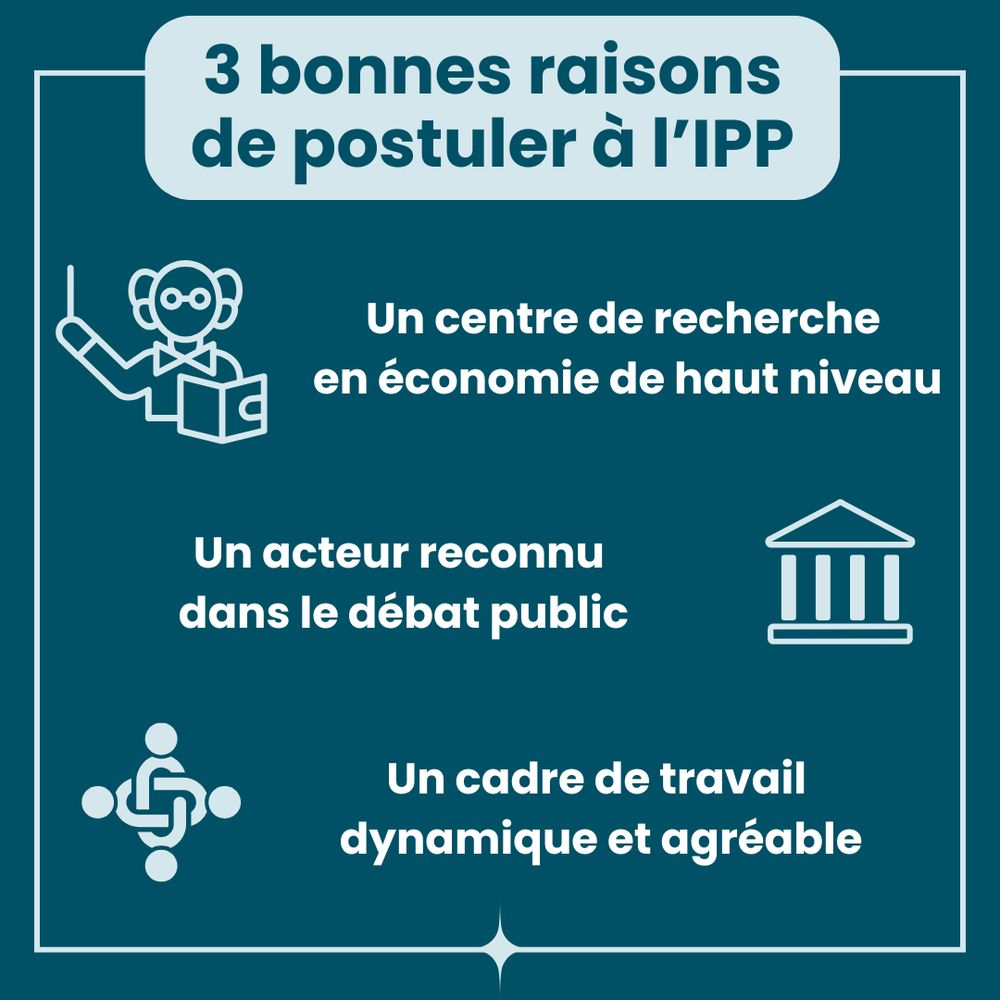Pierre Rousseaux
@pierrerousseaux.bsky.social
300 followers
160 following
56 posts
PhD candidate at CREST (Ecole Polytechnique, ENSAE) | Research affiliate at Institut des Politiques Publiques (IPP) | Director, founder and editor in chief of Oeconomicus
Website: pierrerousseaux.com
Journal: oeconomicus.fr
Posts
Media
Videos
Starter Packs
Pinned
Reposted by Pierre Rousseaux
Reposted by Pierre Rousseaux










